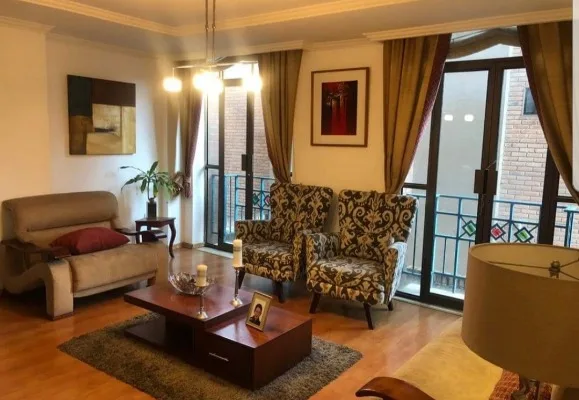Punctuality: Why do expats and Ecuadorians have such different perceptions of being ‘on time’?
By Deke Castleman and Sylvan Hardy
The concept of punctuality is one distinct example of the differences between the Ecuadorian and North American cultures.

You’re late!
Most expats tend to be compulsively prompt and even, by Latin American standards, ridiculously early. Ecuadorians, by contrast, are much looser about being “on time.”
A couple years ago, a big event for expats was held at a Cuenca tour-and-travel business. The American helpers informed the owner and his staff that the event had to be ready no later than 5 p.m. for the 5:30 start time, stressing that the gringos would start showing up about a half-hour early. The Ecuadorians didn’t — couldn’t — believe it and wanted to know why. The explanation: Some people would want to be among the first to arrive in order to hang out awhile before the event with the other early-birds, or to claim a good seat, or to get the first go at the refreshments. The staff thought this was impossible — until five o’clock rolled around and here came the gringos.
At the one-hour private Spanish lesson of a long-time expat, the gringo with the next-hour’s appointment always showed up 10 to 20 minutes early and it always cracked up his teacher.
Sylvan Hardy was the best man at the Cuenca wedding of an old friend, so he had to show up to the ceremony with plenty of time to spare. Another gringo friend, also invited to the wedding with his Ecuadorian girlfriend, offered Sylvan a ride. Sylvan knew better than to take the chance of being late while he waited for the girlfriend to get ready, so he took a cab. As it turned out, Sylvan’s friend and the girlfriend finally showed up — an hour after the ceremony had ended.
When gringos’ appointments or social dates are with other gringos, there’s no uncertainty or cross-cultural confusion. We Norte Americanos are simply wired for promptness. But it gets fuzzy when Ecuadorians are involved in gringo events or gringos are involved in Ecuadorian events.

Latinos often find gringos’ “on-timeness” amusing.
Here in the Andes, it’s not as bad, we’re told, as in other places in Ecuador, such as the coast and jungle. In Cuenca, people have a reputation for being formal, polite, and — yes — punctual, though this on-timeness is mainly centered around business appointments.
Socially, it’s a different story. Even when the established time is for something that gringos usually consider important, like when lunch or dinner at a host’s home will be served, Ecuadorians often arrive “late.” While gringos are there “on time,” they often find themselves sitting around for an hour or more, having cocktails and hors d’oeuvres, while the Ecuadorians filter in. The meal, thus, though it might be ready at the appointed time, might not be served until two hours afterwards. Sometimes, when gringos arrive “on time,” they find their hosts just getting up from a nap, stepping out of the shower, or not even home.
In the Ecuadorian culture, whenever something happens is when it happens, no matter what the invitation might have said or what time appears on the clock. This can cause stress and embarrassment for people wired for promptness. Some people take years to adjust — if they ever do. It’s a very hard habit to break.
Expats with a built-in sense of promptness tend to allow plenty of time to make it to appointments. We justify it to ourselves as the vagaries of the bus schedules (though we know that, even on Sundays, the buses are rarely more than 10 minutes apart) or the uncertainty of walking times (though we know that once the bus drops us off, we’re rarely more than a few minutes from the destination).
And if our timing is a little off and we’re actually running behind, we feel noticeably pressured, even if we’re just a few minutes late. Indeed, many of us still set our alarm clocks and watches a little ahead to provide a promptness cushion.
Perhaps if there weren’t so many gringos around, we could adapt to the attitude of Ecuadorians about time. After all, what’s the hurry? Really, what’s the difference between showing up at 3 o’clock or 3:15 or even 3:30? To us, Ecuadorians seem to experience less time pressure, less stress, more awareness of the present, more life in the flow of now.
If an Ecuadorian is running a little late for an appointment, chances are the person with whom he or she is meeting is late too. And if one of them has to wait a little while, así es (which means, “that’s the way it is,” a common and useful expression around here). Business gets done. Socializing happens. Meals are consumed. The world keeps turning. Life goes on.
After all, this is a culture that takes two-hour lunches. Isn’t that eminently civilized? Many stores close in the afternoon, typically from one to three p.m. No one’s eating at their desks while they work. No one wolfs down fast food between customers. There’s plenty of time to sit, eat slowly and breathe, relax, enjoy the other people at the table, digest, and get back to work without having a stroke. Many even go home to have lunch with the spouse, children, parents, etc.
By contrast, a half-hour midday break to eat, with the tyranny of a time clock or a taskmaster standing there tapping his watch at 31 minutes. Inhuman! But as gringos, we’re so used to the concept that we don’t even question the ridiculousness of it.
A sidelight: Even though it’s a gringo conceit that being on time represents some sort of universal social correctness, it wasn’t until the 1870s and 1880s that North Americans and Europeans began to adopt their on-time attitude. The railroads, needing to establish reliable cross-country and cross-continent schedules, forced the issue. Before then, individual towns and cities kept their own time zones (there were three time zones in Pennsylvania in 1840, for example) and, research shows, the concept of time was much as it remains today in some areas of Latin America.





















